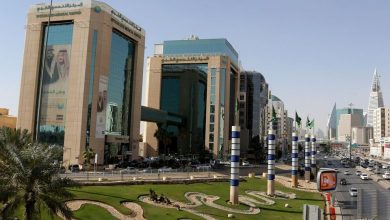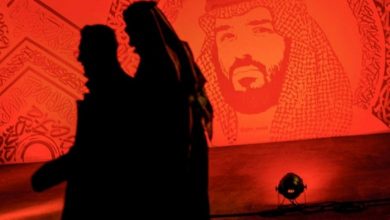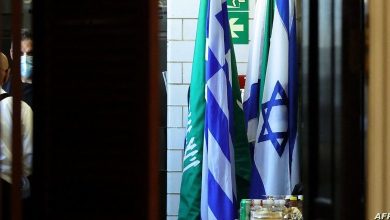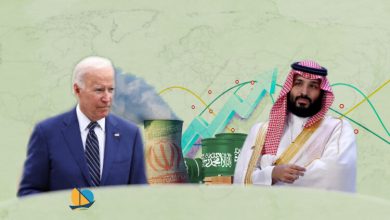The Saudi opposition to form pressure bloc against the Saudi regime
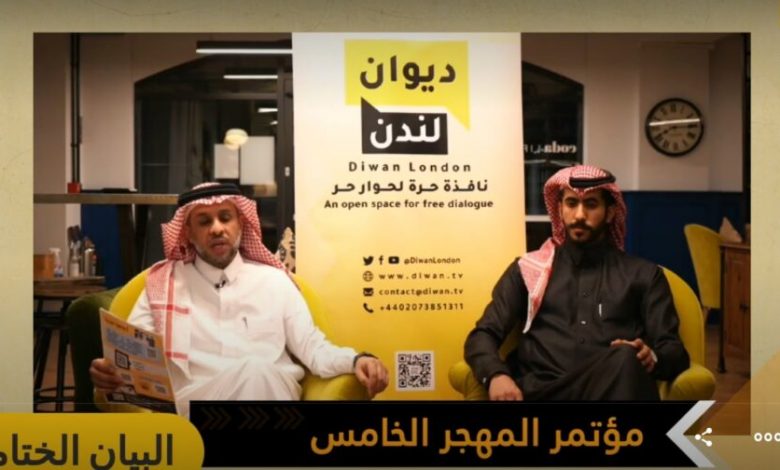
A Saudi opposition conference in London stressed the need to form a larger pressure group on the authoritarian Saudi regime and take concrete steps to further expose its repressive practices in international forums.
The Fifth Diaspora Conference of the Saudi Opposition ended its work in the British capital – London, after several sessions that discussed the situation in the Kingdom. The London Diwan Foundation sponsored it.
The former Secretary-General of the National Assembly Party, Yahya Asiri, read out the final statement of the conference, which aims to establish and strengthen the state of rights and institutions, in which a group of volunteers, the Diaspora League the London Diwan will participate.
Asiri said that the outcomes of the conference emphasized “the consolidation of the moral code of honour that was foreseen previously, and returning to it by reviewing and adding to it, and finding mechanisms to strengthen it and apply it on the ground.”
The final statement called for “working to establish a platform for activists to cooperate, exchange experiences and criticism, and try to understand the positions of some of them away from the open space in which those who do not want good for national action and the opposition enter.”
The conference urged “working to establish a platform that will return migrants abroad to stability, build themselves and help them seek asylum, study and treatment, and build their lives.”
The final statement stressed the need for “coordination and cooperation in joint human rights and political work. Many works are subject to agreement among the Diaspora, which can be focused on, away from the points of contention.”
It stressed that “the most important of these points are the dismantling of tyranny and the protection of our crushed people from rampant oppression.”
The conference called for cooperation in global pressure campaigns to form a larger pressure bloc on the authoritarian regime, cooperation with media and human rights institutions, and the exchange of experiences to form this pressure.
Asiri explained that “what tyranny is doing in Saudi Arabia deserves all efforts, institutional work, cooperation, accepting differences and placing them within their natural scope, and staying away from the behaviour of the authorities and our desires.”
During the conference, the Secretary-General of the Saudi National Gathering Party, Abdullah Al-Awda, Abdullah Al-Awda said that Crown Prince Mohammed bin Salman is trying to imbue himself with a religious character, but unlike the character in which the legitimacy of the modern state has been imbued.
Al-Awda added that bin Salman failed to harness the mechanisms and religious vocabulary in the Arabian Peninsula as a ground to legitimize his current existence, which created a constitutional and legitimacy crisis.
He stated that the understanding of the Saudi regime, especially the king and his crown prince, of the term “guardian” is that this guardian has absolute freedom to act and lead the people to the unknown, no matter what the matter may cost, a matter that the guardian does not have the right to act with absolute freedom, given that it is not “a general power of attorney and free action.”
He pointed out that the Saudi regime believes that its role is to be a general agent for the people, while the elections are the alternative to the ideology of the general agency in which the regime believes.
He said that the Saudi state preferred to be at stake in its version of the case. It could not interact with popular data in understanding religion or even preserve the foundations on which the state was built, as it is illogical in the modern era.
He pointed out that the regime is in a legal dilemma, and therefore its men want to use religion within narrow limits to give legitimacy to tyranny.
Al-Awda stated that the Commission for the Promotion of Virtue and the Prevention of Vice had not been completely abolished but rather had been adapted to the Crown Prince and his repressive practices.
He said that what is currently happening is a particular way to take advantage of religion at a particular moment to legitimize the way of political behaviour. The Saudi state employed the term “jihad,” for example, and applied it in the war in Yemen, and that Saudi Arabia is fighting “the Magi,” and that the dead Saudis are “martyrs.”
He pointed out that the regime’s religious concepts are at hand and are on the shelf and can be resorted to whenever I want to appear or according to need.
Al-Awda pointed out that the ruling regime adopts the so-called “symbolic legitimacy,” which is not real and is not based on a solid ground based on a constitution. It is characterized as a kind of palliative, such as the adoption of the term “custodian of the Two Holy Mosques” and “Council of Senior Scholars” in contrast to the real legitimacy.
He said that the political system in the Kingdom collided with the religious, social and cultural heritage and tried to establish its own religious idea chosen from a narrow horizon in Islamic history.
He emphasized that the regime may have succeeded in establishing a state simply because of political indolence. Still, its establishment was based on the hatred of the people and society and did not consider the existing data and the lack of hostility to reality.
He pointed out that the idea of establishing a democratic state in a state in a place like the Arabian Peninsula requires walking through a “minefield”, which requires not to be complacent about matters that carry abuses or are hostile to entities.
Al-Awda concluded by saying that the so-called “political legitimacy” shows its importance in critical moments, such as the request for the execution of the preacher Sheikh Salman al-Awda. His execution applies to him the case of the Kharijites in that he must be executed.
The second conference session was entitled: Internal repression and how the opposition works and cooperates to stop human rights violations and save and alleviate the people.
Human rights activist Ali Al-Dubaisi said that the opposition’s mission is to push people to be in the field of hope and optimism, as it is the first cell of the people seeking freedom.
He pointed out that the psychological readiness must be available to the people’s will, not necessarily believing that the overthrow of the regime will be close in time.
Al-Dubai said that the recorded incidents of repression in the Kingdom constitute only 5% of what’s being practised on the ground.

